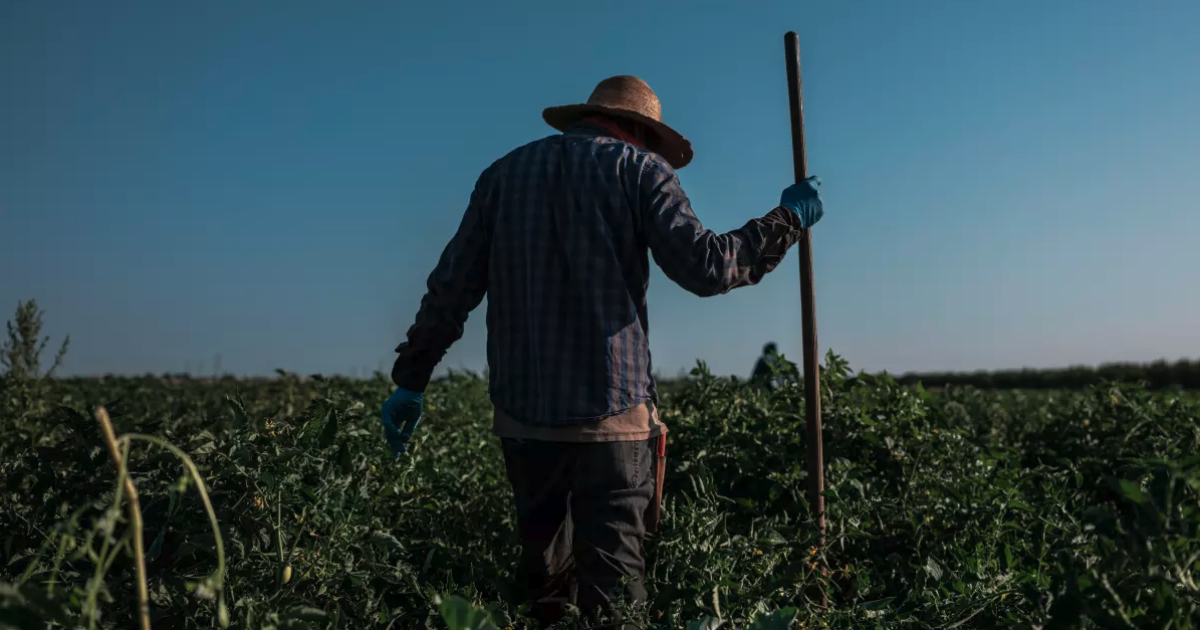As the weather warms, so do the concerns of indigenous farmworkers who endure intense heat and sometimes lose work when shifts are cancelled due to triple-digit temperatures in the fields.
Some say that their age often prevents them from finding work. Reduced wages due to these factors sometimes prevent them from covering basic needs.
In recent weeks, the Central Valley has been hit by temperatures exceeding 110 degrees.
Alejandra Ordaz, a 70-year-old Madera resident of Mixtec descent, said she is not called in for work because contractors or farmers sometimes feel she cannot stand the heat.
“I have been working in the fields for a while. I am already old and for the same reason that it is very hot, they don’t give me work,” she said in Mixtec, through a translator. “And right now I am struggling with food, paying rent and I don’t have money to cover my expenses.”
Bryan Little, director of employment policy for the California Farm Bureau Federation, said that this time of year, agricultural employers “often start work as early as possible” in the day, when there is enough light but it is not too hot. “They will have people work until it is hot enough that it is not safe.”
Little said employees may not like it (the reduction in hours due to heat), but an employer is still responsible for ensuring worker safety, and that may mean reducing hours.
“You’re in an interesting situation between a rock and a hard place,” he said.
Farmers or labor contractors should provide shade, water, and periodic breaks to prevent heat-related illnesses.
“As a representative of Farm Bureau, I would never recommend that an employer make these individuals work in unsafe conditions,” he said.
Juliana Ramírez Pérez, a 55-year-old farmworker, has also been affected by the heat, she said.
Ramírez Pérez said that when temperatures rise, he works less than a normal eight-hour workday. He also can’t stand the heat.
When she spoke to Vida en el Valle in mid-July, she had not worked in the fields for two weeks because she was told there was no work for her.
Ramirez Perez, who has worked in the fields since 1998, said that when he works, he usually leaves his home in Madera around 4 a.m. to arrive in the Visalia area by 5:30 a.m.
She recalled a recent incident when a co-worker became ill while picking grapes in high temperatures. It was only 8 a.m. during lunchtime, but they had to call the foreman and take her home.
“There was plenty of water and clean bathrooms,” Ramírez Pérez said.
Oralia Maceda Méndez of the Binational Center for the Development of Indigenous Communities of Oaxaca said the government does little to help: There are no unemployment benefits when farmworkers are sent home early because of the heat.
She said that for the past two years her nonprofit has lobbied the state to implement a “Safety Net for All” program. The legislation, AB 2847 (Unemployment: Pilot Program for Excluded Workers), would have extended unemployment benefits if a migrant farmworker loses hours due to heat. Gov. Newsom vetoed the bill in 2022.
Newson said the bill needed more work to address operational issues and fiscal concerns, including finding a funding source for the benefit.
Similar legislation, SB 227 (Unemployment Program for Excluded Workers), was reintroduced in the 2023-2024 regular legislative session. Maceda Mendez said her nonprofit, along with a coalition of more than 160 immigrant and worker rights organizations, will continue to push for the bill.
The California Taxpayers Association opposes the measure, arguing that the unemployment system does not have the financial capacity to sustain any additional benefits.
Little said the California Farm Bureau Federation does not have a position on legislation that would provide financial assistance to workers who are not eligible for unemployment insurance (UI) benefits.
Maceda Méndez said farmworkers like Ordaz contribute to the state’s economy.
“And now, at this stage in their life, there are no benefits for the workers (in the fields),” he said at a news conference in July that focused on how hot weather affects farmworkers, financially and physically.
Maceda Méndez said many farmworkers leave their lives in the fields without benefits or programs they might be eligible for because many indigenous farmworkers lack legal status to receive benefits, such as unemployment.
Laura Paz, who is originally from Oaxaca and lives in Fresno, said she works during tomato season, but because of the high temperatures her schedule is from 5 a.m. to 8 a.m. or 8:30 a.m.
“We have very little money left,” said Paz, who would like to have unemployment benefits when her hours are reduced.
With fewer hours during hot days, Paz said she still has to pay for child care as well as transportation to work that typically takes an hour from her home in Fresno.
“It is a call to the authorities that represent us at the different levels of government,” said Maceda Méndez, “to guarantee the well-being of the farm workers for the contribution they are making to the harvest of crops, and above all, to the economy of this state and this country.”
___
(c)2024 the Merced Sun-Star (Merced, Calif.) / Distributed by Tribune Content Agency, LLC.
